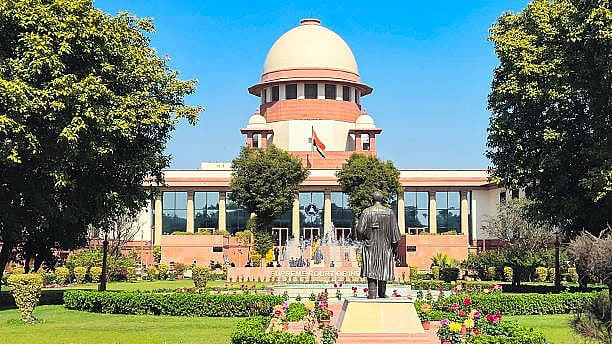
Supreme Court of India.
Credit: iStock Photo
The Supreme Court has done well to stay some of the contentious provisions of the Waqf (Amendment) Act, which the government had brought in claiming that it would prevent the misuse, mismanagement, and encroachment of waqf properties. It has not stayed the entire law and has allowed the operation of some of its provisions.
The stayed provisions are also subject to final adjudication. While contending that the law violates the right to religion, the Muslim community has maintained that it is an attempt by the government to take over waqf properties.
The district collector’s powers to unilaterally decide whether a property is waqf or government land now stand suspended. Provisions that allow the authorities to de-recognise waqf land during the pendency of the decision have been suspended – no third-party rights should be created on such property till the dispute is decided. When in force, these provisions can lead to situations where the community members lose control of the waqf property. Empowering government officials and non-Muslims to make decisions on waqf properties would have diluted the community’s rights.
One suspended provision had prescribed that a waqf property would lose its status if the district collector identified it as government land. As the Court noted, this violated the principle of separation of powers. Decisions about the title of a property can be made only by a judicial or quasi-judicial authority. The Court capped the number of non-Muslims in the Central Waqf Board to four out of 22 and three out of 11 in state councils.
As the Court was told and as it seems to have accepted, major institutions under other religions are run by those belonging to the respective faiths. There is no reason why it should be different with waqf and Muslims. The Court has also stayed a provision that only those who have practised Islam for five years could create waqf, till state governments framed the relevant rules. It said the stay was intended to protect the interests of all parties during the pendency of matters.
The Court, however, did not stay a waqf-by-use provision, which deems land used for religious or charitable purposes for a long time as waqf land, as it did not find the provision prima facie unconstitutional. The petitioners have expressed satisfaction that some of the controversial provisions will not be in operation now. Through its intervention, the apex court has addressed concerns raised about the law, which was framed without consultations with the Muslim community and was railroaded through parliament without considering the views of the Opposition.
